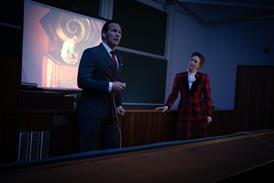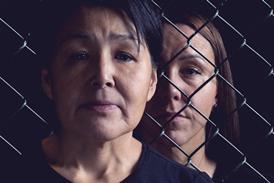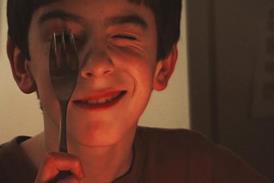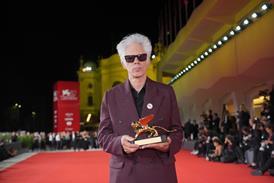Haruo Sotozaki’s adaptation of Koyoharu Gotouge’s manga novels should please fans and newcomers alike
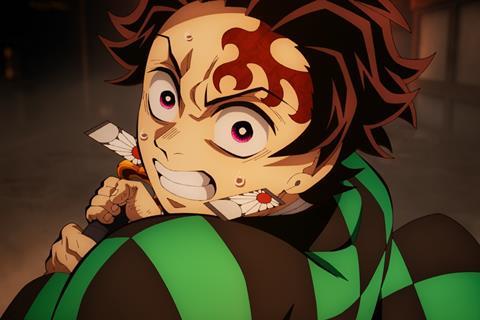
Dir: Haruo Sotozaki. Japan. 2025. 155minutes
A young demon-slaying warrior gets thrown into an otherworldly demon-haunted realm and steels himself for the final battle between good and evil in Haruo Sotozaki’s Demon Slayer: Kimetsu no Yaiba Infinity Castle. This is the first part of a new trilogy spanning, roughly, the final eight of Koyoharu Gotouge’s 23 manga volumes first published between 2016 and 2020, and dives into the final showdown fans have been waiting for while keeping the complicated narrative accessible to all. While it nearly wears out its welcome with a repetitive cycle of encounter, flashback, reflection and fight, its mix of vibrant visuals, melodrama and low-key comedy kick the story into gear in the final hour.
A cinematic scope and polish
The Demon Slayer series has so far produced several hugely successful features, including Demon Slayer: Kimetsu no Yaiba Mungen Train (2020), which became the highest ever grossing film at the Japanese box office, as well as a popular anime television series. Infinity Castle, which directly follows on from season four of the TV series, To The Hashira Training, has so far grossed $173m domestically, making it Japan’s highest earner of 2025 so far. It is now rolling out through Asia Pacific in August and Europe and North America in September (the English-language version will feature Channing Tatum amongst the voice cast). With the manga having a solid fan base in APAC and a growing cult following internationally, its global prospects look strong.
To say there is a lot of lore in Infinity Castle is an understatement. Set during the Taisho period (1912-1926), Tanjiro Kamado (voiced in Japanese by Natsuki Hanae) is an aspiring hashira, a high-ranking soldier in the Demon Slayer Corps – an elite group tasked with ridding the world of demons. In this fantasy world, these demons are people who have been turned through tainted blood, and are vulnerable to sunlight, decapitation by special sword or poison. They also have fangs, but they are not vampires.
Tanjiro’s dark secret is that his sister Nezuko (Akari Kito) is a demon who still displays human characteristics – like walking in the sun. That gets the attention of demon patient zero Muzan who, for much of the entire story, has been looking for a way to find Nezuko and absorb her in order to endure the sun himself. When Infinity Castle begins, Tanjiro and many of his Corps allies have been flung into Muzan’s 3D extra-dimensional maze following a brutal fight and a failed attempt to kill Muzan.
Artist and animator Sotozaki (Gintama, Mobile Suit Gundam) certainly has a lot of groundwork to lay for newcomers, which he manages to do without alienating diehard fans. Details revolving around the elemental breathing techniques that superpower the Corps may be lost on rookie viewers, as might the labyrinthine back stories connecting the characters and the finer points of the mythology.
Indeed, the over-stuffed narrative finds slayers confronting various demons with whom they have personal connections, and Tanjiro and the insecure Giyu (Takahiro Sakurai) going head-to-head with the spectacularly vicious Akaza (Akira Ishida), last seen in Mugen Train. This three-way battle is the film’s emotional centrepiece, in which Akaza deals with demons of his own.
Sotozaki works in tandem with animation director Akira Matsushima to create lushly drawn widescreen images and kinetic action sequences, which are a little more violent than those seen on television. Those, together with a propulsive score by Yuki Kajiura and Go Shiina, give Infinity Castle a cinematic scope and polish. The fights are creative, the sprawling – indeed infinite – castle stronghold is visually imposing, and the narrative’s emotional beats land.
On the downside, the episodic structure occasionally disrupts the pacing in what is already an overlong runtime, the vocalised internal dialogue can be hard to get used to, and several of the franchise’s most popular characters are absent from the main action – though they’re clearly on deck for the next instalment. That probably can’t come soon enough for Demon Slayer’s legions.
Production companies: Ufotable
International sales: Sony Pictures Entertainment
Producers: Akifumi Fujio, Masanori Miyake, Yuma Takahashi, Tatsuro Hayashi, Takao Shimazaki
Screenplay: Hikaru Kondo, based on the manga by Koyoharu Gotouge
Cinematography: Yuichi Terao
Editing: Manabu Kamino
Music: Yuki Kajiura, Go Shiina
Main cast: Natsuki Hanae, Hiro Shimono, Yoshitsugu Matsuoka, Takahiro Sakurai, Akira Ishida, Saori Hayami, Mamoru Miyano, Yoshimasa Hosoya, Reina Ueda



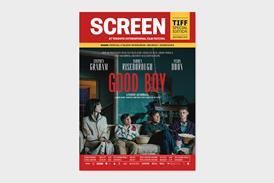

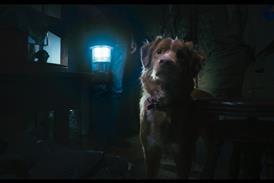
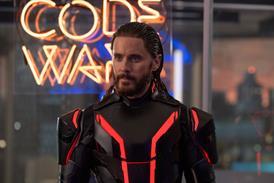
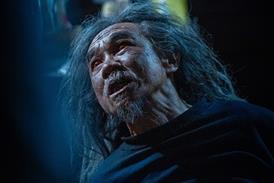

![[Clockwise from top left]: 'The Voice Of Hind Rajab', 'A House Of Dynamite', 'Jay Kelly', 'After The Hunt', 'The Smashing Machine'](https://d1nslcd7m2225b.cloudfront.net/Pictures/274x183/1/7/0/1459170_veniceawards_837515.jpg)




